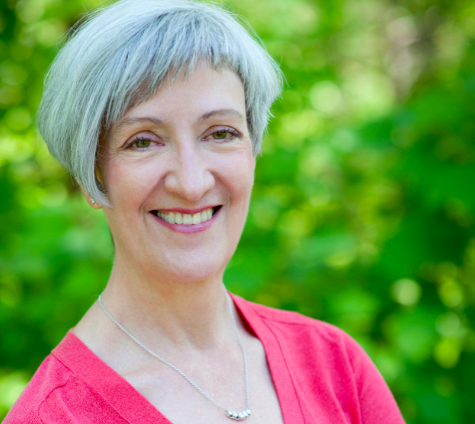
Ask 10 people to define “strategic planning” and you will likely get 10 different responses, ranging from outsmarting the competition to planning ahead to all departments working together rather than in a segmented fashion. For Erika Andersen, the answer is simple and complete:
Being strategic means consistently making those core directional choices that will best move you toward your hoped-for future.
In other words, strategic planning is not a one-time event but rather a way of being, every day.
I recently interviewed Erika about strategic planning not only in an organizational context, but in our individual lives as well. For example, each member of the ASPIRE Success Club sets a Bold Goal for the year, and we wanted to explore how Erika’s process might help each of them effectively plan, activate, and achieve her goal. Erika’s lessons did not disappoint! Whether you’re in the midst of strategically planning for your company, defining roles for your team, or wanting to move more intentionally toward personal goals, you’ve likely had similar questions to those we asked Erika. Here are a few of Erika’s many tips that you can use to support your experience:
Strategic planning typically involves long-term goals and vision. How can we stay motivated when we might not reach our goals for a year or more?
“You may need to periodically retrofit your goal,” Erika suggests. “Ask yourself, ‘Why is this goal important to me? What is it that I’m excited about?'” Reconnecting with your initial purpose for the goal can ramp up your energy and passion. If you can’t answer the question easily, that may be a signal to change your goal to suit your present situation.
Also, set subsidiary goals to support your longer-term ones. For example, if you strive to become a neurosurgeon – quite a long-term goal – you need to break it up. “Set incremental goals along the way, like completing this semester with an ‘A’ average,” recommends Erika.
When focused on a future goal, staying in the present moment can prove challenging. How do you suggest balancing the vision for the future with being mindful in the present?
Erika responded with two suggestions: first, think of your goal like a travel destination. “You know where you want to go, and you’ve mapped the path to best get there,” Erika replied, “but you wouldn’t just sit and stare at the map the entire trip.” Just like you would look out the window and enjoy the scenery on a roadtrip, be sure to do so on the pathway to your goals as well.
Second, engage in mindfulness practices. Whether through yoga, meditation, exercise, journaling, or something altogether different, do whatever works for you – and do it on a regular basis.
What if you set an amazing Bold Goal, then don’t achieve it – or decide halfway through that it’s not the right goal for you after all?
“Never view a shift in your long-term goal as failure,” suggests Erika. Your visionary goal is essentially a best guess and, once you’re on the path, you may discover detours and need to change your route. “By trying to create a future for yourself that’s intentional, you’re way ahead of most. If things change, that’s o.k.!”
I always ask interviewees to leave us with an action tip, an important step that we can implement immediately. I love Erika’s tip: Learn to manage how you talk to yourself. “We talk to ourselves a lot throughout a given day,” says Erika. “Sometimes what we say to ourselves is benign, but often times not; we say things to ourselves that, if other people said them to us, we wouldn’t be friends with them anymore.” Your language is your single most powerful tool for success. Use it with intention, and choose your words wisely!
“People who achieve important goals – climbing a mountain, running a company well, being a good parent – rarely do it by accident… They have a clear idea of what success would look and feel like for them, and they make decisions based on whether a particular choice will move them toward that desired future state.” ~ Erika Andersen
You can find Erika’s strategic planning process outlined in her book, Being Strategic (St. Martin’s Griffin, 2010). Learn more about Erika at www.erikaandersen.com and www.proteus-international.com.
 Dr. Christi Hegstad helps you successfully do what you love! As President of MAP Professional Development Inc., she coaches executives and leaders who feel stuck – whether in their leadership abilities, at a certain income level, or “spinning their wheels” in the day-to-day – to flourish towards their vision with clarity, confidence, and meaningful action.
Dr. Christi Hegstad helps you successfully do what you love! As President of MAP Professional Development Inc., she coaches executives and leaders who feel stuck – whether in their leadership abilities, at a certain income level, or “spinning their wheels” in the day-to-day – to flourish towards their vision with clarity, confidence, and meaningful action.
Learn more at www.meaning-and-purpose.com, on Facebook, and via Twitter.





